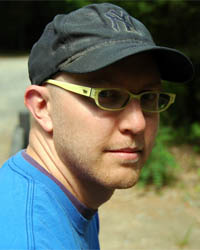Announcements
Benjamin Hale Presented on "Moral Hazards and Geoengineering" at the October 2010 Missoula Workshop on Ethics of Solar Radiation Management
October 22, 2010
Benjamin Hale presented on Moral Hazards and Geoengineering at October 2010 Workshop on "The Ethics of Geoengineering: Investigating the Moral Challenges of Solar Radiation Management" held in Missoula, MT. View Benjamin Hale's presentation.
To stimulate in-depth discussion on topics within the ethics of Solar Radiation Management (SRM), The Center for Ethics convened a 3-day workshop at The University of Montana from October 18-20th, 2010. Attending the workshop were leading scientists and scholars who will share their expertise on Solar Radiation Management technologies and help focus discussion on the particular ethical issues they raise. Also recruited were 8 highly qualified graduate students to participate, based on their academic preparation and their proposal submissions on the ethical issues raised by SRM.
Sections of the workshop were devoted to 1) the complex problems SRM creates in social, procedural, and environmental justice, 2) the question of whether anthropogenic global warming is appropriately viewed as requiring a technological fix, 3) a range of issues related to public trust in science, 4) the question of how best to manage the risk and uncertainty associated with SRM, and 5) the implications of SRM for our understanding of ‘nature’ and its bearing on our relationship to the planet. During the three days in Missoula, pieces required for a white paper on the ethics of SRM were put into place. Papers and ideas for a journal special issue and an anthology on the ethics of SRM were also gathered. The workshop included two evening lectures that were free and open to the public.
After the workshop, project social scientists will investigate public views on geoengineering, with a focus on vulnerable people in arctic indigenous communities, small island developing states, and rural communities in sub-saharan Africa and the U.S. southwest. The goal of the social science is to learn how people in vulnerable communities consider risk, justice, and global governance when thinking about geoengineering.
The project is interdisciplinary, combining philosophical and social science research, guided by an advisory panel of geoengineers, climate scientists, representatives from indigenous groups, and policy experts.

